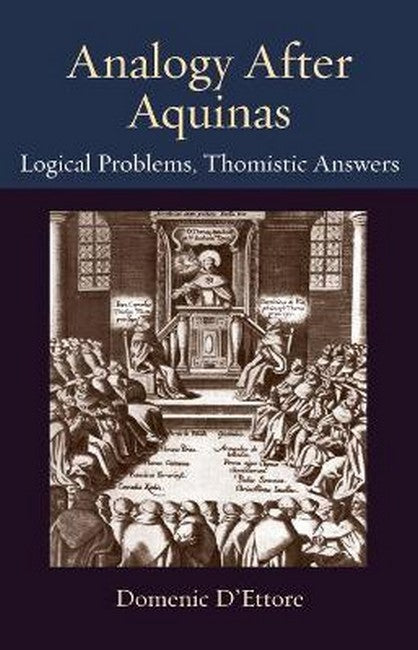Domenic D'Ettore is assistant professor of philosophy at Marian University, IN.
Request Academic Copy
Please copy the ISBN for submitting review copy form
Description
"Textually rich and philosophically astute, contributing significantly to discussions of analogical predication and of histories of Thomism. D'Ettore's identification of three problems frames well the comparisons between Thomists and clarifies the philosophical and theological stakes."--Corey Barnes, Oberlin College"It is well known that analogy played a crucial role in the metaphysics and theology of Aquinas. But until recently, relatively little attention has been paid to the explorations and arguments, more in logic and epistemology, that preoccupied St. Thomas's later medieval Dominican successors. Analogy after Aquinas offers a thorough study of seven important thinkers who grappled with various questions left unresolved, and even unformulated, in Aquinas's own writing about analogy. This book will be a lasting resource for Thomists and historians of philosophy, will inspire new evaluations of Aquinas and his legacy, and should help renew contemporary discussions about the formation and use of concepts."--Joshua P. Hochschild, Mount St. Mary's University "Thomas Aquinas's account of analogy is a distinctive part of his own philosophy and a touchstone of the later Thomistic school. Nevertheless, Thomas's texts on the topic are somewhat indistinct and confusing even to scholars. Domenic D'Ettore's book is now the central reference for medieval and renaissance Thomistic accounts of analogy. It clarifies essential metaphysical and logical issues in scholastic philosophy that have enduring philosophical importance. It needs to be read by every historian of medieval philosophy and every Thomist."--Thomas M. Osborne, author of Human Action in Thomas Aquinas, John Duns Scotus, and William of Ockham "Aquinas bequeathed his Dominican disciples a distinctive but incomplete and even enigmatic account of analogy. Domenic D'Ettore traces and meticulously analyzes the efforts made by the leading protagonists of the Thomistic school up to the mid-sixteenth century to construe Aquinas's doctrine as well as to respond to the forceful objections proposed by alternative scholastic traditions, in the first place Scotism. In this valuable contribution to the history of the Thomistic school, D'Ettore argues successfully that these three issues, as well as the often divergent resolutions proposed, were closely interdependent."--Michael Tavuzzi, OP, Professor Emeritus, Pontifical University of St. Thomas, Rome

